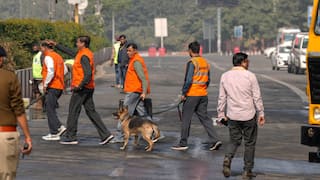Pakistan Floods: Army To Assist In Rescue & Relief Work, 982 People Dead So Far Amid Rain Fury. Key Points
The Pakistan government has sought the Army's help as the floods have affected more than 33 million people. Monsoon rains have submerged more than half of the country.

New Delhi: The Pakistan government called in the Army to help in the rescue and relief operations as many parts of the country are witnessing the worst floods in more than a decade.
Interior Minister Rana Sanaullah said that the Pakistan Army's help has been sought while the floods have affected more than 33 million people.
He informed the armed forces were being deployed under Article 245 of the Constitution which empowers the government to summon the Army in aid of the civilian administration to deal with an emergency.
"All the provincial governments had sent the requisition to deploy Armed forces under article 245, which has been approved by the interior ministry. The army personnel are being stationed to lend a hand to the civilian authorities in relief activities in the flood-ravaged areas," he wrote.
Pakistan Floods: 982 People Killed So Far, 1,456 Individuals Hurt
- In the biggest floods in more than a decade, 982 people have been killed so far across Pakistan. According to the National Disaster Management Authority (NDMA), 45 persons died in the last 24 hours. Another 1,456 persons were hurt, with 113 injuries reported in the last 24 hours, news agency PTI reported NDMA as informing.
- The floods have also affected the infrastructure as the NDMA reported that more than 3,161 kilometres of road were damaged and 149 bridges swept away. 682,139 houses were totally or partially damaged in the floods.
- Sindh and Balochistan provinces are reported to be the worst hit by the disaster. Pakistan Railway suspended its operation at several places in the two provinces. Meanwhile, Pakistan International Airlines on Friday halted its flights to Quetta, the capital of Balochistan province, due to bad weather.
- Floods triggered by unprecedented monsoon rains have submerged more than half of Pakistan, leaving more than 5.7 million without shelter and food in 110 districts, PTI reported.
-
Prime Minister Shehbaz Sharif chaired a meeting with a select group of Islamabad-based Ambassadors, High Commissioners, and other senior members of the diplomatic corps ambassador on Friday and was briefed on the flood situation in the country. Citing the initial damage assessment, he informed that the losses caused by the floods were comparable to those Pakistan suffered during the flash floods of 2010-11.
The meeting was attended by Ambassadors and High Commissioners of Australia, Canada, China, Japan, Kuwait, UAE, Turkiye, South Korea, the US, Germany, and senior diplomats of Bahrain, the European Union, France, Oman, Qatar, the UK, and Saudi Arabia.
-
The Prime Minister stated that more than 33 million people had been badly affected by flash floods and torrential rainfalls. Pakistan’s carbon emission footprint was negligible but it was ranked at the 8th position among the countries exposed to the horrors of climate change, he mentioned.
PM Sharif stressed rehabilitation and reconstruction of climate-resilient infrastructure in Pakistan as he noted that climate change has made flooding worse. He said that the government had decided to reach out to friendly countries, donors, and international financial institutions for their continued cooperation in this difficult period.
A formal notification issued on Friday informed that the exact number of troops and area of deployment would be worked out by respective provincial governments in consultation with the military operations directorate and General Headquarters.
“The date of de-requisitioning of said deployment will be decided subsequently after mutual consultation among all stakeholders,” according to the notification quoted by PTI.
Downpour In Pakistan About 192% More Than Rainfall In Previous Three Decades
Minister for Environment Sherry Rehman said that Pakistan normally witnesses about three to four spells of torrential rains every year. However, this year the nation has been hit by eight monsoon spells so far and more downpour is expected.
As per the NDMA data, the average rainfall in the monsoon season during the last 30 years was 132.3 mm. However, so far 385.4 mm of rains have been recorded since June 14 -- about 192 per cent more than in the previous three decades.
The Pakistan Prime Minister said that the Foreign Office and the NDMA were closely coordinating with the United Nations Resident Coordinator in Islamabad to launch a UN Flash Appeal on August 30.
The Country Representative of the World Food Programme (WFP) was also present at the meeting chaired by PM Sharif.
Foreign diplomats have assured the Pakistani government of their countries' continued support in meeting the requirements of the rescue and relief operations.
(With Agency Inputs)
Top Headlines







































